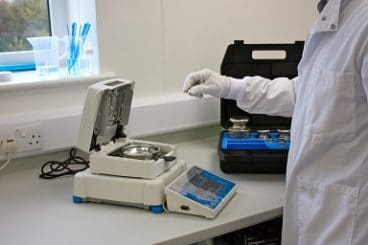The Importance of Precision: A Guide to Scale Calibration Services

Image Source: Google
When it comes to using scales for measurements, precision is key. Whether you are in the pharmaceutical, food processing, or manufacturing industry, accurate measurements are crucial for ensuring quality control and compliance with industry standards. To maintain precision in your measurements, it is essential to regularly calibrate your scales. If you need more information about scale calibration services, you may visit here https://industrialscaleinc.com/services/iso-17025-scale-calibration-2/
This article will guide you through the importance of scale calibration services and provide you with the information you need to ensure accurate measurements in your operations.
What is Scale Calibration?
Scale calibration is the process of adjusting a scale to ensure its accuracy and precision in measuring weight. This process involves comparing the output of the scale to known weights and making adjustments as needed. Calibration is necessary to correct any inaccuracies that may have developed over time due to factors such as wear and tear, temperature fluctuations, or improper handling.
Why is Scale Calibration Important?
- Ensures accurate measurements: Calibrating your scales regularly helps ensure that your measurements are precise and reliable.
- Compliance with regulations: Many industries have strict regulations regarding the accuracy of measurements, and regular calibration is necessary to comply with these standards.
- Quality control: Accurate measurements are essential for maintaining quality control in manufacturing processes and ensuring the consistency of products.
- Prevents costly errors: Inaccurate measurements can lead to costly errors in production processes, inventory management, and financial transactions.
Types of Scale Calibration Services
There are various types of scale calibration services available to meet the specific needs of different industries and applications. Some of the most common types of scale calibration services include:
On-Site Calibration
- Conducted at your facility: A technician will visit your site to calibrate your scales on-site without the need to transport them.
- Convenient and time-saving: On-site calibration eliminates downtime and transportation costs associated with sending scales to a calibration lab.
- Ideal for large or immobile scales: On-site calibration is ideal for heavy-duty or fixed scales that are difficult to move.
Off-Site Calibration
- Performed at a calibration lab: Scales are sent to a calibration lab where they are tested, adjusted, and certified for accuracy.
- Comprehensive calibration: Off-site calibration services often include thorough testing and adjustment procedures to ensure the accuracy of your scales.
- Recommended for precision instruments: For highly sensitive or specialized scales, off-site calibration may be the best option to ensure accuracy.
How Often Should You Calibrate Your Scales?
The frequency of scale calibration depends on several factors, including the type of scale, its intended use, and industry regulations. In general, it is recommended to calibrate your scales:
Regularly
- For most industries, annual calibration is sufficient to ensure accuracy and compliance with regulations.
- High-traffic scales may require more frequent calibration to account for wear and tear.
After Adjustments or Repairs
- Whenever a scale is adjusted or repaired, it should be calibrated to verify its accuracy.
- Calibration is essential after any major changes to the scale or its environment to ensure consistent measurements.
Choosing a Calibration Service Provider
When selecting a calibration service provider for your scales, it is essential to consider the following factors:
Accreditation and Certifications
- Choose a provider that is accredited by a reputable organization such as ISO or NIST to ensure the quality and accuracy of their calibration services.
Expertise and Experience
- Look for a calibration provider with experience in calibrating scales for your specific industry or application to ensure they understand your unique requirements.
Service Level Agreements
- Check if the calibration provider offers service level agreements that outline their calibration procedures, turnaround times, and costs for transparency and accountability.
Traceability and Documentation
- Ensure that the calibration provider maintains traceability of measurements and provides detailed documentation of the calibration process for compliance and record-keeping purposes.
By following these guidelines and working with a reputable calibration service provider, you can ensure the accuracy and precision of your scales for reliable measurements in your operations.

